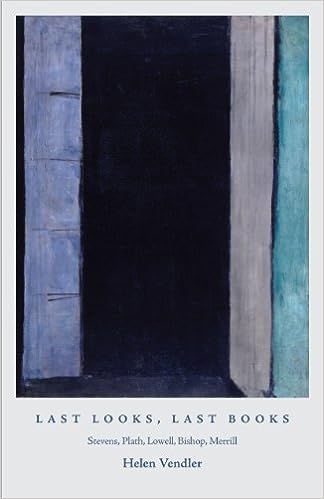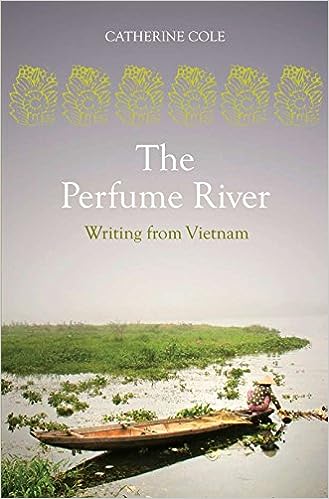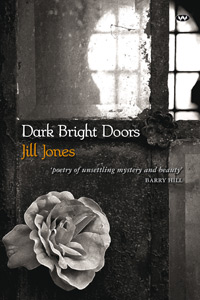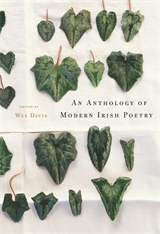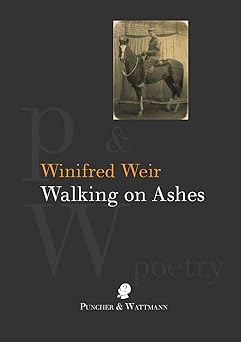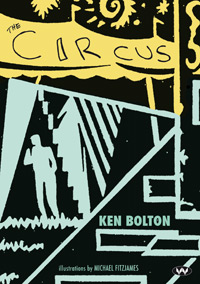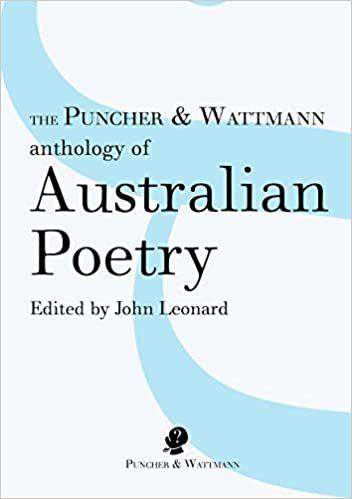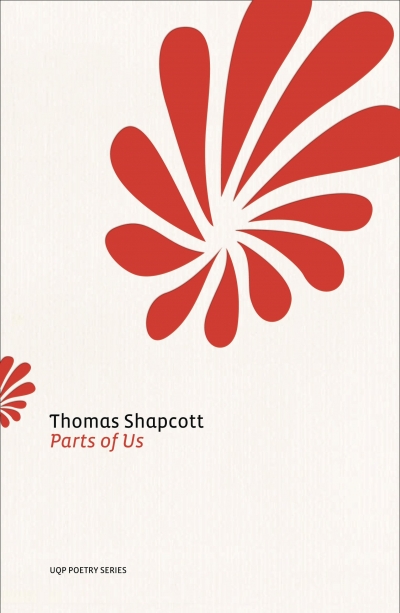Poetry
Last Looks, Last Books: Stevens, Plath, Lowell, Bishop, Merrill by Helen Vendler
Helen Vendler, a supreme partridge among American critics of poetry, has written a third shining book on style – which she has made her métier, rather after Theodor Adorno, the philosopher-critic of music and the aesthetic high road. In her first, The Breaking of Style (1995), about Hopkins, Heaney, and Graham, she revealed how poets ‘can cast off an earlier style to perform an act of violence on the self’ – extending mastery. Coming of Age as a Poet (2003) was about the mature self-making of Milton, Keats, Eliot and Plath. Both books delivered the pleasures to which we have become accustomed: the feeling that we are in the company of a most brilliant undresser of poems, a critic who knows their stitching so well that she can lay their song and soul truly bare. Her powers of elucidation, with its enshrining of techne, have long brought joy to poets and their readers.
... (read more)The Perfume River: Writing From Vietnam edited by Catherine Cole
The Perfume River crosses the city of Hue, in the centre of Vietnam. Like tributaries that flow into the main body of water, this anthology of short stories and poetry crosses temporal and geographical boundaries, with Vietnam as the locus point. As editor Catherine Cole says in her introduction, ‘For all Vietnam has defined itself as a voice of inspiration, of homeland, memory and discovery’. The subtitle is not quite accurate, as it implies that all the creative pieces originate within the country, whereas the contributions come from various sources: from Vietnamese nationals living in the motherland, but also from second-generation Vietnamese contemplating home from afar, and from non-Vietnamese who nonetheless have an affinity with the land and its culture. With both insider and outsider perspectives, ‘writing of or about rather than from Vietnam’ might have been a more apt subtitle.
... (read more)In Dark Bright Doors, her tenth book, Jill Jones again explores a sense of contradiction. Perhaps in tune with this theme, Jones’s work here also shows two distinct types of poems, one that is part-hallucinatory, invoking the elements ‘air’, ‘water’ and an encompassing natural world of breath, rain, sky, sun, wings. In these poems, Jones attempts to describe the indescribable, to remark on or absorb the world’s beauty and peril. Many of these poems consequently feel insubstantial and vague, though that may be their aim – to suggest, to hint at something, to sketch in mystery, rather than to pin it down.
... (read more)An Anthology Of Modern Irish Poetry edited by Wes Davis
For W.B. Yeats, Ireland was the place and source of poetry, even when he was living in Oxford or London. It was also a mythical figure, enabling of ardour and of song, the desirable ‘Cathleen, the daughter of Houlihan’; and it became a delicately evocative crepuscule, mocked by Brendan Kennelly when he opens a poem with ‘Now in the Celtic twilight decrepit whores / Prowl warily along the Grand Canal’. The very phrase ‘Irish poetry’ sounds like a pleonasm. For that moist country has long seemed synonymous with verse and folksong: just as Holland is synonymous with painting and France with elegant thought. Further, when I think of contemporary poets in our widespread language, Seamus Heaney must surely be the dominant world figure and Paul Muldoon the most verbally dazzling, even if our Les is close to Paul in this caper.
... (read more)Why do you write?
It’s not really a choice, but a necessity. Usually, it is the pressure of an idea or an emotional state that only seems to be satisfactorily released as words on a page. Sometimes, if there is a choice involved, it is in choosing not to write.
Are you a vivid dreamer?
Yes. A lot of my work originates in dream. Glissando began as a transcription of a dream I had longer ago than I care to admit.
... (read more)In 1914 men left for war expectant of a great adventure,’ Winifred Weir writes in the introduction to her poetry collection. ‘So many died. So many returned haunted, silent, desperate with what they had seen and endured.’ Walking on Ashes is Weir’s attempt to understand the effects of war on her family; her father and brother fought in World War I and World War II, respectively. The book, loosely chronological, contains dates of battles and their locations (‘Gallipoli’, ‘Passchendaele 1917’, ‘Amiens, France, 1918’). Some poems are out of order, suggesting that the sequence of events is less important than their overall consequence. In Walking on Ashes, time – like Weir’s father’s right arm – is shattered by war. The point of view is fluid, too: it shifts between father, mother, daughter, and son, as each has an experience to relate.
... (read more)Mid-career reinvention is an exciting thing. Ken Bolton’s poem ‘Outdoor Pig-Keeping, 1954 & My Other Books on Farming Pigs’, in Black Inc.’s The Best Australian Poems 2009, was the most surprising poem in the book. Where were the friends, artists and cafés? Where were the small ironies? A larger irony was at work. Bolton’s new book, The Circus, is something else again: a wry, sly and affectionate long poem nothing like Frank O’Hara – generally seen as Bolton’s guiding influence – and not much like Bolton’s Australian peers either. While much of Bolton’s poetry relies on a bemused first-person narration, relentlessly questioning what a poem or even a thought can do, The Circus is narrated in a shifting third person. It makes quite a difference.
... (read more)It is strangely affecting to see people’s lips moving as they sit silently reading to themselves. Apparently, when we read we can’t help but imagine speaking. Even silent reading has its life in the body: seeing words, the part of our brain that governs speech starts working. When we read poetry silently to ourselves, is it our own voice or the poet’s voice that we hear?
... (read more)The Puncher & Wattmann Anthology of Australian Poetry edited by John Leonard
‘Posterity is so dainty,’ complained the American essayist John Jay Chapman, ‘that it lives on nothing but choice morsels.’ Chapman was writing about Browning, whose work for his contemporaries meant life, not art. But, Chapman predicts, ‘Posterity will want only art’. It is a nice distinction when considering our penchant for anthologies. This daintiness goes all the way back to the first anthology, Meleager’s in ancient Greece, as the word itself means ‘flower gathering’, or simply a ‘garland’ or ‘bouquet’. We pick poems like flowers and arrange them in a book. The suggestion, of course, is that certain kinds of poems tend to get left out in favour of those that work best as stand-alone ornaments, giving us an unnatural notion of what’s actually out there growing in the fields.
... (read more)This is Tom Shapcott’s thirteenth individual collection of poetry (two Selected Poems have appeared, in 1978 and 1989) in a writing life that – at least for his readers – began with the publication of Time on Fire in 1961. It continues something of a late poetic flowering, which, to my critical mind, began with The City of Home in 1995. All in all, Parts of Us is no disgrace to its twelve predecessors.
... (read more)

